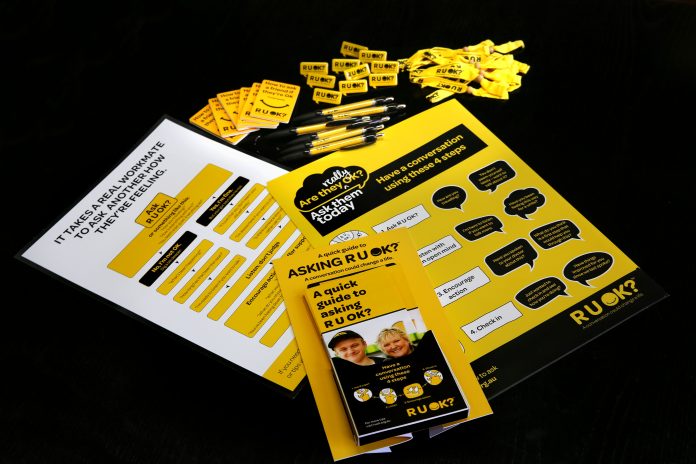R U OK? have released a campaign dedicated to young Australians aged 16 to 25. ‘#FriendBetter with R U OK?’ recognises that, like good friends, some things are just better together.
‘#FriendBetter with R U OK?’ has been informed by the ‘Connecting Young Australians’[1] report, which found seven in ten are willing to talk about their mental health when asked by a trusted friend, but a lack of skills and confidence is a barrier to young people supporting someone close to them.
The digital campaign presents everyday duos having supportive conversations; for example, a phone and charger feel better when they’re connected. These regular, meaningful conversations highlight that we all have what it takes to help our friends feel supported during what is a transitional phase of life for young people.
The duos link through to short, easy-to-digest conversation guides that address the top life stressors for young people as identified in the research including motivation, financial stress, relationships, mental health, and academic stress.
‘#FriendBetter with R U OK?’ has been developed with the expertise of advocates and valuable guidance of young people with lived experience, including 20-year-old Sydney University student Kailash Sarma.
“I volunteer with a team of other young people from across Australia on the R U OK? Youth Think Tank,” said Mr Sarma, who lost a close friend during his HSC year. “We discuss current issues, suggest ideas for how best to engage effectively with young people in the suicide prevention space, and provide feedback on ideas from a youth perspective.
“It’s so important to look out for each other, to be in tune with our friend’s energy and feel ready to offer that support if they don’t seem themselves,” he said. “‘#FriendBetter with
R U OK?’ shows how to have those conversations and support your mates through tough times.”
19-year-old university student Aleuca Angel, from Sydney’s south, volunteers as an R U OK? Community Ambassador and is passionate about sharing the R U OK? message due to her experience with childhood trauma and mental health challenges.
“I haven’t felt very confident asking someone if they’re OK before. I remember thinking I wouldn’t be able to offer advice that could help them or know what to say. I was worried the person would regret coming to me,” said Ms Angel.“What I understand now is that the conversation I could have had was as simple as lending a listening ear and saying, ‘I support you; I hear you.’”
“I have seen conversations between myself and others that really have made a big positive difference and been a catalyst for people seeking help,” said Ms Angel. “When you’re going through a tough time, support from close friends can change everything. It makes you realise you are not alone.
“‘#FriendBetter with R U OK?’ provides an outline of how to navigate these conversations. I hope it helps people to reach out if they think a mate might be struggling,” she said. “We all have what it takes to ‘friend better’.”
The ‘Connecting Young Australians’ report also found seven in 10 Australians aged 12 to 25 do not ask for help when they are experiencing a difficult time and that one in two young people have felt someone close to them was struggling and not asked if they were OK. The leading reasons were feeling like it wasn’t their place (57%), being afraid they would make the situation worse (48%) and not having the confidence (31%).
“Our research shows that the young people in our world won’t always tell us they need support, so it’s up to us to make asking how they’re really going and offering our support a part of our everyday friendships,” said Katherine Newton, R U OK? CEO. “We want young people to know that when we offer that support genuinely, it can help people feel better about themselves and their situation.”
“Through ‘#FriendBetter with R U OK?’ we want to equip young people with the skills and confidence to ask the question, listen, and help a friend navigate life’s ups and downs, which happen to all of us,” she said.
‘#FriendBetter with R U OK?’ was developed through generous support from ING Bank Australia.
For tips and tools on how to #FriendBetter with R U OK? visit ruok.org.au
For free and confidential support at any time of day or night, young people aged 5 to 25 can access Kids Helpline on 1800 55 1800 or chat online, 24/7 at: kidshelpline.com.au.
13YARN is a free 24/7 service offering crisis support for Aboriginal & Torres Strait Islander people. Call 13YARN (13 92 76).
For support at any time of day or night, Lifeline provides free and confidential crisis support. Call 13 11 14, text 0477 13 11 14 or chat online at: lifeline.org.au.
References:









